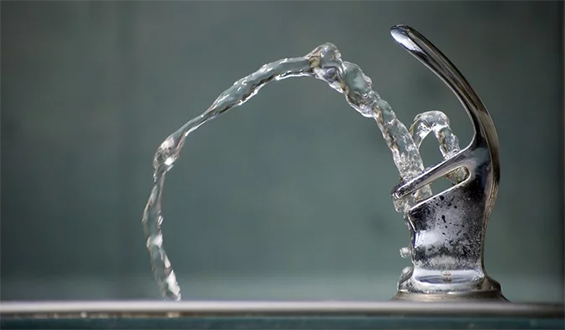
Officials in the largest school district in New Jersey were forced to shut off the water taps 30 buildings after elevated levels of lead and discoloration were found.
City officials are ensuring that the problem stems from the lead piping in the buildings, and that Newark’s water supply overall has not been affected. Meanwhile, the school district is currently using alternate water sources, according to the state Department of Environmental Protection.
“In the vast majority of cases where lead is found in drinking water, it enters through the water delivery system itself when it leaches from either lead pipes, household fixtures containing lead or lead solder,” the DEP said.
Notices have been posted concerning the issue, while water bottles and coolers have been sent to the school buildings in the city.
Frank Baraff, the city’s communications director, said that school district and state officials would be completely transparent throughout the entire situation, and that the issue was not as bad as the ongoing water crisis that occurred in Flint, Michigan. Baraff said he has been in constant contact with area hospitals and has received word that families have already began to bring their children in for blood testing, reports Tyler Tynes for The Huffington Post. Baraff went on to say that the recommendation at this point is to not drink the water.
With a total of close to 300,000 residents, Newark is home to the largest school district in the state by student enrollment. Over 25% of residents in the city are under the age of 18. In all, over 80% of residents consider themselves to be non-White, and almost 53% are black.
Water issues are beginning to crop up throughout the country, as officials in Sebring, Ohio, and Jackson, Mississippi have also mentioned high levels of lead in the local tap water.
Baraff said that while drinking the contaminated water at the schools would not cause any health concerns on a short-term basis, he was unsure of long-term effects. At the same time, the DEP said that some of the levels found in Newark schools were higher than the Environmental Protection Agency’s “action level” for lead, which is 15 parts per million, the threshold at which additional testing, monitoring, and remediation is necessary.
“I understand in the Flint environment that any sign of elevation is going to make everyone go haywire, but here, the water system in Newark is still safe, it’s still drinkable,” Newark Mayor Ras Baraka said at an afternoon news conference. “A lot of our buildings are old. That speaks to infrastructure, the reason why we need new schools.”
The DEP added that parents should not be concerned about the lead when it comes to their children drinking water and eating food while at school, because drinking water alone is not typically connected to elevated lead levels in blood.
Still, the state chapter of the Sierra Club environmental group is pushing for additional testing and pipe replacement, saying the state has older pipes throughout which could result in higher levels of lead in the water.




